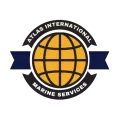
Australia and Singapore have embarked on a collaborative journey with the launch of a $20 million initiative aimed at reducing emissions within the maritime sector.
This partnership, known as the Australia-Singapore Initiative on Low Emissions Technologies (ASLET), is a strategic move to address the environmental challenges posed by the shipping industry.
Unlocking New Fuel Solutions
The ASLET is designed to support the outcomes of the Singapore and Australia Green and Digital Shipping Corridor (GDSC).
A project that focuses on decarbonizing and digitizing shipping routes between the two nations.
The initiative is expected to pave the way for new fuel solutions and accelerate the deployment of zero or near-zero greenhouse gas (GHG) emission technologies at scale.
This is significant given Singapore’s status as the world’s largest bunkering and busiest transshipment hub port and Australia’s potential as a leading producer and exporter of low-emissions fuels.
Collaborative Efforts and Investments
Both countries have committed up to $10 million each to deliver projects under ASLET, with the first Steering Committee meeting led by:
- Representatives from the Maritime and Port Authority of Singapore (MPA).
- CSIRO.
- Singapore’s Agency for Science, Technology and Research (A*STAR).
The initiative will facilitate research, demonstration, and commercialization of technologies, fuels, and energy sources for maritime shipping and port operations.

Advancements in Fuel Technology
Singapore is actively preparing to meet the net-zero needs of shipping by updating participants on its methanol and ammonia bunkering capability developments.
The MPA is working with stakeholders to develop pathways for these marine fuels, which are considered more environmentally friendly alternatives to traditional bunker fuel.
The world’s first ocean-going ammonia-powered vessel, Fortescue Green Pioneer, has already conducted its first fuel trial in Singapore, showcasing the progress in this area.
International Commitment and Collaboration
The International Maritime Organization’s (IMO) 2023 GHG Strategy reflects the shared commitment of Member States and the global shipping industry to reduce emissions.
The MPA and the International Energy Agency (IEA) have signed a Memorandum of Understanding (MoU) on the Energy Transition of the Maritime and Port Industries, solidifying this commitment.
Supporting SME Innovation
CSIRO has announced a $20 million investment to provide SMEs with access to research and development opportunities, which could potentially contribute to the maritime sector’s decarbonization efforts.
Programs like CSIRO Kick-Start have already facilitated numerous company-led R&D projects, demonstrating the value of such investments.
Green and Digital Shipping Corridor
The memorandum of understanding to establish a Green and Digital Shipping Corridor by 2025 is a testament to their dedication to decarbonizing and digitizing the maritime industry.
This corridor aims to facilitate the supply of sustainable marine fuel from Australia to Singapore.
Final Thoughts
The ASLET partnership between Australia and Singapore represents a significant step forward in the global effort to reduce maritime emissions.
By combining resources, expertise, and strategic positioning, both countries are well-placed to lead the charge in creating a more sustainable shipping industry.
This initiative not only benefits the participating nations but also sets a precedent for international maritime communities to follow
Found this article interesting, and useful? Please feel free to interact, recommend and share.
If you have any questions about this topic or would like to discuss your own business needs, please contact us today!
